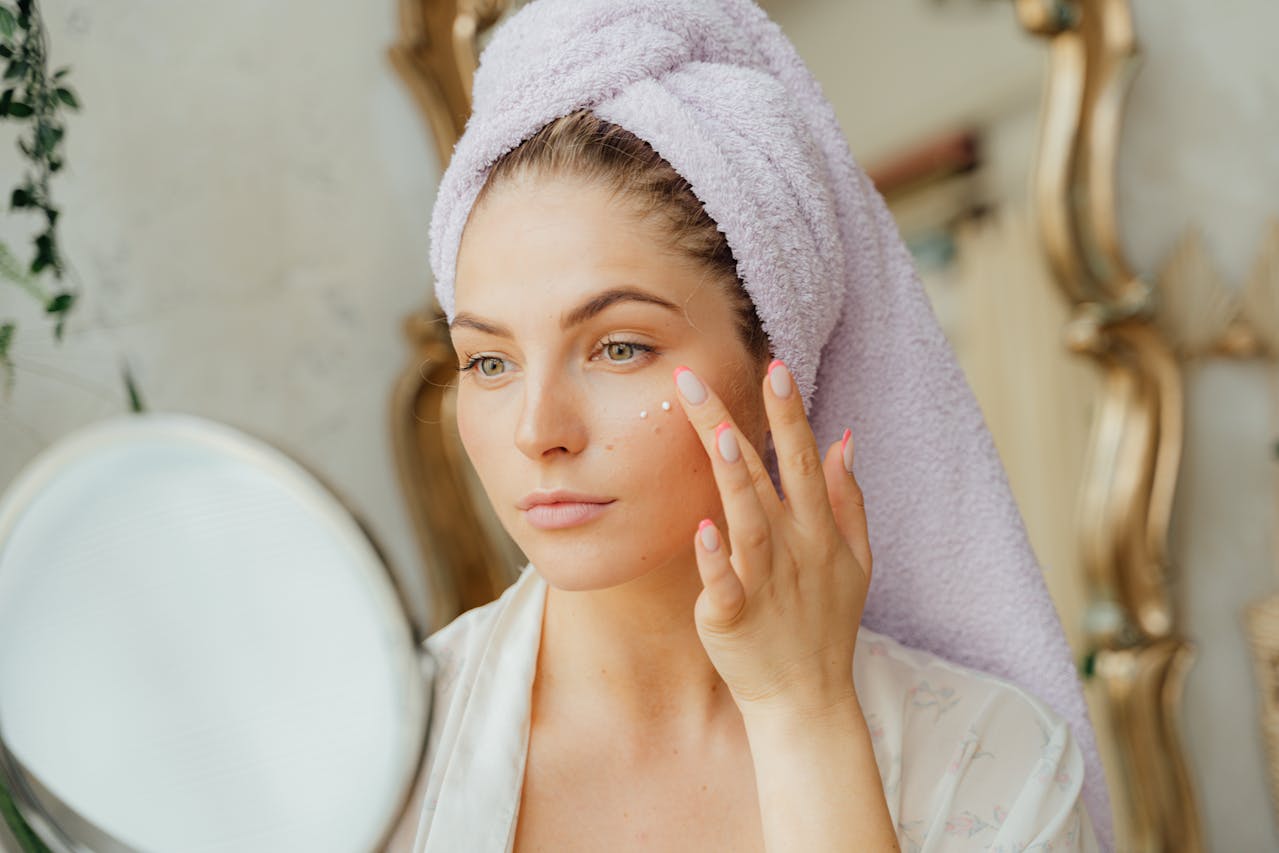Rosemary Oil Revival: The Hair Oil Trend Taking Over TikTok in 2024
The rosemary oil craze is capturing the attention of TikTok users in 2024, with numerous videos highlighting its positive effects on hair growth and scalp health. This organic treatment has become increasingly popular among beauty fans seeking cost-effective haircare options. Made from the fragrant rosemary plant, this oil is known for improving hair growth by increasing blood flow to the scalp and promoting thicker, stronger hair strands.
The distinctive factor of rosemary oil is its simplicity in usage and wide popularity. The trend, propelled by influencers, gains momentum through testimonials demonstrating notable enhancements like quicker hair growth and decreased breakage. Frequently, individuals share homemade recipes, utilizing rosemary oil on the scalp through direct application or by blending it with water or carrier oils. A study from 2015 discovered that rosemary oil might be just as effective as minoxidil, a popular treatment for promoting hair growth, indicating its potential to assist with minor hair loss issues.
In addition to encouraging growth, rosemary oil is known for its anti-inflammatory and antioxidant properties, which support scalp health by reducing flakiness and dandruff. Unlike many chemical treatments, it offers a natural alternative that appeals to people seeking cleaner beauty products. With TikTok’s influence, the trend has created a community of users documenting their results, making rosemary oil one of the most accessible viral haircare solutions this year.
The Science Behind Rosemary Oil: Why It Works for Hair Growth
Rosemary oil’s effectiveness in promoting hair growth is rooted in its powerful, natural compounds. This essential oil contains carnosic acid, camphor, and flavonoids, all of which stimulate blood flow to the scalp, increasing nutrient delivery to hair follicles. This boost in circulation is believed to encourage new hair growth and strengthen existing hair, making it a popular choice for people experiencing thinning hair or hair loss.
One standout study in 2015 showed that rosemary oil might rival minoxidil, a well-known hair growth treatment, in encouraging hair growth without causing scalp irritation. This has made rosemary oil especially appealing as a gentler alternative for promoting hair health. By reducing inflammation and providing antioxidant benefits, rosemary oil also supports an ideal environment for hair growth, which can be particularly beneficial for those with sensitive or flaky scalps.
Rosemary oil helps maintain scalp health by preventing buildup and keeping it clean with its antibacterial and antifungal properties, preventing blockage of hair follicles and hindering growth. Consistent application of rosemary hair oil, usually a small amount rubbed into the scalp 2-3 times weekly, enables its beneficial components to effectively nourish and rejuvenate the scalp in the long run. This organic treatment, boosted by TikTok’s 2024 haircare fads, is still drawing in individuals seeking a secure, budget-friendly, and convenient option for growing hair.

TikTok’s Influence: Why Rosemary Oil Is Trending in 2024
In 2024, TikTok’s vast influence has propelled rosemary hair oil into a viral haircare phenomenon, with #rosemaryoil and related hashtags amassing billions of views. This surge is largely driven by influencers and everyday users sharing their positive experiences and impressive before-and-after results. Videos on rosemary oil for hair growth emphasize its natural benefits, such as enhanced hair thickness and scalp health, drawing in viewers eager to find an affordable, effective solution for haircare.
Influencers have a significant impact on spreading information, frequently demonstrating how easy it is to use rosemary oil, whether as a scalp massage oil or by incorporating it into homemade hair remedies. These testimonials from users help establish trust and a feeling of unity, making users feel included in a collective haircare experience. Mielle Organics and Weleda are also becoming increasingly popular on TikTok, with notable increases in sales as users rush to purchase items that have been endorsed on the platform.
TikTok’s unique format allows short, engaging clips to demonstrate application tips, share visible results, and offer advice on choosing between products, amplifying the appeal of rosemary hair oil. This platform-driven trend has reshaped consumer perceptions, turning rosemary oil into a go-to product for natural hair growth and maintenance. Through TikTok’s widespread reach, rosemary hair oil has become more than a beauty product; it’s now a social movement centered around accessible, natural self-care.
Benefits of Using Rosemary Oil: More Than Just Growth
Rosemary oil has become a popular choice on TikTok in 2024, not only for its hair growth benefits but for a wide range of haircare perks. Beyond encouraging hair growth, rosemary oil can add shine, reduce dandruff, and improve overall scalp health. This essential oil is rich in antioxidants and anti-inflammatory compounds, helping to soothe irritation and reduce scalp flakiness, which can lead to stronger, healthier hair. For those dealing with dryness or itchiness, rosemary oil’s calming effects make it a natural remedy for creating a healthier scalp environment.
When rosemary hair oil is compared to oils such as argan or coconut, its scalp-stimulating properties make it particularly noteworthy. Coconut oil is famous for its nourishing properties that are great for dry or damaged hair, but it lacks the circulation-boosting benefits of rosemary oil. On the flip side, argan oil is great for adding moisture and shine, but it doesn’t have the antimicrobial and growth-stimulating benefits that rosemary provides. Rosemary hair oil boosts blood circulation to the scalp, promoting hair growth and fortifying it from the roots to prevent thinning.
Incorporating rosemary oil into your routine is simple: dilute it with a carrier oil and massage it into your scalp 2-3 times a week, or add it to your shampoo. The routine use of rosemary hair oil can offer a natural path to shinier, fuller, and more resilient hair, making it a versatile choice in the world of viral TikTok haircare solutions.
How to Use Rosemary Oil: Tips, DIYs, and Application Techniques
Using rosemary oil for haircare has become a popular trend on TikTok in 2024, with many showcasing its benefits for hair growth and scalp health. Incorporating rosemary hair oil into your routine is straightforward, and there are multiple ways to use it effectively.
Dilution and Application: To lessen the strength of rosemary oil, mix it with a carrier oil such as coconut, jojoba, or almond oil. The typical recommendation is to blend approximately 5 drops of rosemary oil with one teaspoon of carrier oil. After dilution, apply the mixture to your scalp, concentrating on the areas where you wish to promote growth. This increases blood flow to the hair follicles, potentially improving hair growth and scalp health. For optimal outcomes, allow the oil to rest for 30 minutes before rinsing it away with a gentle shampoo. For a more intense treatment, let it sit overnight and rinse it off in the morning.
Adding to Shampoo or Conditioner: For a simpler method, add a few drops of rosemary oil to your regular shampoo or conditioner. This way, you can integrate rosemary oil benefits into your routine without extra steps. Use about 3-5 drops per ounce of product, ensuring the oil is well mixed.
DIY Rosemary Water Spray: A rosemary-infused spray can be an easy leave-in option. Boil fresh rosemary sprigs in water, strain, and pour the liquid into a spray bottle. Apply it to your scalp daily for a refreshing boost without the heavier feel of oils.
Consistency Is Key: For noticeable results, use rosemary oil consistently, about 2-3 times per week. Regular use helps maximize its benefits, such as reducing dandruff and adding shine, making rosemary oil a versatile addition to your haircare routine.

Are There Any Side Effects? What to Know Before You Start
While rosemary oil is trending on TikTok for its hair growth benefits, it’s important to consider possible side effects and precautions before use. Rosemary oil, especially when undiluted, can cause skin sensitivities or irritation. To minimize the risk, always dilute it with a carrier oil such as coconut, jojoba, or olive oil. A common dilution ratio is about 2%, or roughly 12 drops of rosemary hair oil per ounce of carrier oil.
It is crucial to conduct a patch test prior to using rosemary oil extensively. For a patch test, put a small amount of the thinned oil on a less conspicuous spot of skin, such as the inner elbow, and wait a day to check for any redness, itching, or swelling. It is advisable to refrain from using rosemary oil on your scalp if there is any negative response.
Additionally, rosemary oil may interact with certain medications, such as anticoagulants and blood pressure medications. For those who are pregnant or breastfeeding, consulting a healthcare professional before using rosemary oil is advised, as its safety during these periods is not fully established.
Overall, rosemary oil is typically safe and beneficial for hair when used in moderation, about 2-3 times per week. Taking these precautions can help ensure that you incorporate it into your routine effectively and safely.
Where to Buy and What to Look for in a Quality Rosemary Oil
With the rosemary hair oil trend booming on TikTok in 2024, finding a high-quality product is essential for achieving the best results. You can purchase quality rosemary oils from health food stores, pharmacies, and reputable online retailers like Amazon and Sephora. Recommended brands known for purity and effectiveness include SVA Organics, Maple Holistics, and Handcraft Blends. These brands offer therapeutic-grade oils that are 100% pure and free from fillers, ideal for scalp and hair health.
When selecting rosemary oil, look for labels specifying “organic” or “therapeutic grade,” which often indicate a higher purity level and fewer additives. Opting for oils stored in dark amber or blue glass bottles is also wise, as this packaging helps preserve the oil’s potency by protecting it from light. Additionally, brands that provide third-party testing results or certifications, like USDA Organic, can offer more assurance of quality and authenticity.
Mielle Organics’ Rosemary Mint Scalp & Hair Strengthening Oil is a favored choice for improving both scalp health and hair growth, especially for those seeking rosemary oil blends tailored for haircare. On the other hand, Aromatica’s Rosemary Root Enhancer Spray is a light choice that can be used often. Prior to applying any essential oil on sensitive skin, make sure to examine the ingredient list for any included fragrances or fillers. It is also recommended to do a patch test to confirm compatibility.
Conclusion
Rosemary oil is now considered one of the best options for all-natural hair care, lauded for its ability to boost growth, improve shine, and maintain scalp health. Due to its growing use on TikTok, rosemary oil is now easier to obtain than before. Think about investigating this trend to attain healthier, stronger hair for yourself.










